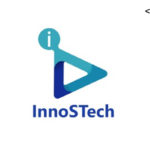Salesforce has become a transformative force in today’s business landscape, reshaping how companies manage customer relationships and streamline operations. The tech industry’s need for skilled professionals continues to rise, and Salesforce has become a crucial player in the fields of customer relationship management (CRM) and cloud computing.

With a growing awareness among businesses about the effectiveness of Salesforce in enhancing operational efficiency and elevating customer interactions, there has been a notable surge in the need for proficient Salesforce professionals. This blog will guide you through the Top 10 Salesforce Training Institutes in Chennai.
Following is the list of the Top 10 Salesforce Training Institutes.
- FITA Academy
- Intellipaat
- Simplilearn
- Edureka
- Besant Technologies
- Greens Technologys
- Infycle Technologies
- ACTE
- Credo Systemz
- BTree Systems
1. FITA Academy
FITA Academy is a renowned training institution that offers an extensive array of more than 120 courses available in both online & offline modes. The institute is well-known for its proficiency in delivering crucial technical and professional certifications, establishing itself as a leading authority in the industry. With a dedicated team of more than 1,000 experienced trainers, each boasting a decade of expertise, the institute has positively influenced the educational journeys of more than 75,000 learners. The institute’s dedication to providing high-quality training opportunities is reflected in its multiple branches located in Bangalore, Pondicherry, Coimbatore, and Madurai, ensuring accessibility for individuals from diverse regions.

Why the Salesforce Course in Chennai at FITA Academy?
FITA Academy delivers comprehensive Salesforce Training in Chennai, covering fundamental to advanced-level concepts. The curriculum is tailored to be accessible for beginners and encompasses a wide range of Salesforce functions. Topics include configuring the Salesforce tool, user management, data access and security, data management, report and dashboard generation, workflow and process automation, data model development, user interface creation, business logic development, and data security management. The course comes at an affordable price, ensuring that cost is not a barrier to learning. FITA Academy offers flexible batch schedules, accommodating classes on weekends and weekdays for learners’ convenience. Additionally, they extend placement support to participants upon completing the training.
Customized Curriculum of Salesforce Training Course
The Salesforce Training in Chennai at FITA Academy is meticulously crafted with essential concepts of Salesforce, Uses, Modules, Data Models, Navigation methods, etc. They also assist the learners with the insights of Configuration Activities and Calendars, User Interface Configuration, Configuring Search Settings, etc. They also guide the students with the knowledge of Managing Users, Data Access and Security, Customizing Objects, Data Management in Salesforce, Generating Reports and using Dashboards. Workflow and Process Automation, Managing Support, Platform App Builder, Building User Interface, Developing Business Logic.
They provide invaluable insights on Data Security Management, Business Process Automation, App Deployment, Working with Advanced UI Components, and Limitations of Declarative Options. The curriculum also extends to Platform Developer, APEX Programming, Using Classes in Apex, The Salesforce Object Query Language (SOQL), Exploring Data Manipulation Language (DML), Triggers, Strategically Designed Triggers, Apex Transactions, Debugging Apex Code, Testing Apex Code, Strategies for Testing, Working with Visualforce Pages, Controller and View Layers, Understanding Custom Controllers and Extensions, Working with SOSL Queries in Visualforce, etc.
Experienced Instructors
FITA Academy boasts expert trainers in Salesforce individuals with practical industry experience. These instructors focus on imparting theoretical knowledge and valuable real-world insights to students. They play a pivotal role in keeping learners updated on the latest industry trends, ensuring their readiness for the dynamic realm of Salesforce.
Project Presentation Sessions
An outstanding feature of FITA Academy’s Salesforce Course in Chennai is the integration of project presentation sessions. Acknowledging the importance of practical experience in mastering Salesforce and preparing for a successful career, these sessions empower students to apply Salesforce principles in real-world scenarios, providing invaluable hands-on exposure.
Complimentary Placement Sessions
FITA Academy’s commitment to Salesforce Training in Chennai extends beyond the classroom. Their dedication lies in preparing students for the competitive job market. As part of this commitment, they offer free placement sessions, including resume building, interview skill refinement, job placement assistance, and career guidance. These sessions are meticulously designed to support students in achieving their career goals. With an extensive network of more than 1,500 partner companies, FITA Academy facilitates job placements for graduates, presenting a wide range of opportunities within the Salesforce industry. This expansive network ensures students have access to promising career prospects, facilitating a seamless and successful transition into the professional world.
2. IntelliPaat
IntelliPaat specializes in delivering Salesforce training from beginner to advanced levels. While their curriculum includes valuable learning materials, they prioritize online classes, which may impact direct interaction between instructors and students. The course cost could be relatively higher compared to other institutes.
3. Simplilearn
Simplilearn is renowned for its online platform. Simplilearn offers a flexible Salesforce Training Course covering fundamental to advanced-level concepts. It predominantly focuses on online courses, affecting direct interaction between learners and trainers.
4. Edureka
Edureka provides comprehensive Salesforce training with real-time assistance. Despite offering extensive facilities, their primary focus remains online courses, which might not be convenient for students and trainers to directly interact.
5. Besant Technologies
Besant Technologies specializes in delivering Salesforce Training and aims to enhance skills and provide valuable industry knowledge. However, it may not be the best fit for those seeking a more in-depth learning experience.
6. Greens Technologys
Greens Technologys tailors its Salesforce Training to industry-specific requirements. While they provide all these facilities, their placement support may not be as extensive compared to some other institutes.
7. Infycle Technologies
Infycle Technologies offers an extensive Salesforce course, providing essential skills. However, it might not be the optimal choice for learners seeking a more comprehensive and in-depth learning experience.
8. ACTE
ACTE specializes in providing Salesforce Training, covering comprehensive concepts. However, their level of placement support may be relatively less extensive compared to certain other institutes.
9. Credo Systemz
Credo Systemz Specializing in tailored Salesforce Training for industry-specific needs. While they provide all these benefits, their practical training aspect is not as comprehensive compared to other institutes.
10. BTree Systems
BTree Systems focuses on offering Salesforce courses that impart essential skills. It’s worth noting that their practical training component may not be as extensive compared to some other institutes.
Freshers Jobs meticulously selected these institutes after thorough research, taking into account factors such as brand reputation, student feedback, and a proven track record of student achievements.
What is Salesforce?
Salesforce is a cloud-based CRM (Customer Relationship Management) platform that provides a suite of applications to help businesses manage their sales, customer service, marketing, and more. It provides a centralized and integrated approach to handling customer data and interactions, empowering organizations to build and maintain strong customer relationships. Salesforce has become a global CRM solution, serving businesses of all sizes and industries. It is known for its scalability, versatility, and continuous innovation, making it a valuable tool for organizations seeking to enhance their customer relationships and overall business operations.
Role of Salesforce in the Current Professional World
Salesforce stands out as a resilient and adaptable solution applicable to various industries. Its influence extends across diverse sectors, positioning it as an essential tool for organizations aiming to prosper in the contemporary business environment. As a preeminent Customer Relationship Management (CRM) platform, Salesforce offers a centralized hub for organizations to oversee and assess customer interactions, sales procedures, and marketing campaigns.
Its cloud-based approach enables real-time collaboration, accessibility, and scalability, making it a preferable choice for businesses of all sizes. One of the key strengths of Salesforce lies in its adaptability. It offers a suite of tools & features that can be customized to meet diverse businesses’ specific needs and workflows. From automating routine tasks to providing deep insights through analytics, Salesforce empowers companies to make data-driven decisions and enhance overall efficiency.
In addition to its CRM capabilities, Salesforce has expanded its footprint into various domains, including marketing automation, artificial intelligence, and application development. The introduction of the Salesforce AppExchange further extends its functionality, allowing businesses to integrate third-party applications seamlessly. Salesforce’s impact goes beyond the technical realm and fosters a customer-centric approach.
Businesses can deliver personalized experiences, anticipate needs, and build lasting relationships by centralizing customer data. The platform’s agility enables companies to adapt quickly to market changes and stay at the forefront of the competition.
Furthermore, Salesforce has played a pivotal role in the rise of remote work. Its cloud-based nature facilitates collaboration and accessibility from anywhere, promoting flexibility in work arrangements. Especially in the post-pandemic environment, where remote and hybrid work models have become the norm, Salesforce continues to be a driving force in supporting the evolving dynamics of the modern workplace.
As businesses navigate the complexities of today’s competitive landscape, Salesforce remains strategic, offering a comprehensive solution to drive growth, innovation, and customer satisfaction. Its continuous evolution and commitment to staying at the forefront of technological advancements position Salesforce as an indispensable tool for success in the contemporary business world.
Significance of Salesforce
The following components collectively make Salesforce a versatile and comprehensive platform for customer relationship management (CRM) and business process automation.
- Customer Relationship Management (CRM): Salesforce is a leading CRM platform providing businesses with a centralized system to manage and analyze customer interactions. This helps in building and maintaining strong, long-lasting relationships with customers.
- 360-Degree View of Customers: Salesforce provides a holistic perspective on customer data, interactions, and preferences, offering a complete view. This 360-degree insight empowers organizations to enhance their understanding of customers, anticipate their requirements, and provide personalized experiences.
- Sales and Marketing Automation: Salesforce automates and optimizes sales and marketing processes. From lead generation and tracking to email marketing and analytics, Salesforce provides tools that enhance the efficiency of sales and marketing teams.
- Cloud-Based Accessibility: With its cloud-based nature, Salesforce permits users to retrieve data and applications from any location with an internet connection. This adaptability holds significant value in an age characterized by remote work and international collaboration.
- Scalability and Customization: Salesforce is highly scalable, adapting to the growing needs of businesses. Its customizable nature allows organizations to tailor the platform to their requirements, ensuring it aligns with their unique processes.
- Analytics and Business Intelligence: Salesforce provides robust analytics and reporting tools, allowing organizations to derive meaningful insights from their data. This data-driven approach empowers informed decision-making and strategy development.
- AppExchange Ecosystem: Salesforce’s AppExchange offers a vast ecosystem of third-party applications and integrations. This allows businesses to extend the platform’s functionality, integrating it with other tools and systems to create a comprehensive business environment.
- Innovation and Continuous Updates: Salesforce consistently introduces new features and updates, staying at the forefront of technological advancements. This commitment to innovation ensures that users benefit from the latest tools and functionalities.
- Job Market Demand: Businesses’ widespread adoption of Salesforce has created a high demand for professionals with Salesforce skills. Learning and mastering Salesforce has become a valuable asset for individuals seeking opportunities in the job market.
- Community and Support: Salesforce has a strong and active community of users, developers, and experts. This community support and extensive documentation and training resources ensure that users can find help and guidance whenever needed.
Key Components of Salesforce
- Sales Cloud: Sales Cloud automates sales processes and provides features for opportunity management, sales forecasting, and lead nurturing. It allows sales teams to track leads, manage contacts, and collaborate effectively to close deals. The platform also offers analytics tools to assess sales performance and identify areas for improvement.
- Service Cloud: Other than managing customer issues, Service Cloud includes tools for case tracking, knowledge management, and customer self-service portals. It allows businesses to provide personalized support, automate service workflows, and gain insights into customer satisfaction. Service Cloud also integrates with various communication channels, such as social media and email, to streamline customer interactions.
- Marketing Cloud: Marketing Cloud goes beyond automation by offering tools for personalized customer journeys, email marketing, and social media advertising. It enables businesses to create targeted campaigns, analyze customer behavior, and optimize marketing strategies. The platform’s strong analytics assist marketers in comprehending the impact of their campaigns and in making decisions based on data.
- Commerce Cloud: Commerce Cloud facilitates online transactions and provides tools for inventory management, order fulfillment, and personalized shopping experiences. Businesses can create seamless, mobile-friendly storefronts, implement marketing promotions, and optimize the entire e-commerce process. Commerce Cloud’s integration capabilities ensure a unified experience across various channels.
- Community Cloud: Community Cloud fosters engagement by allowing businesses to create branded online communities. These communities can serve as a hub for collaboration among employees, partners, and customers. Features include discussion forums, file sharing, and access to relevant resources. Community Cloud enhances communication and knowledge-sharing within an organization’s ecosystem.
- Analytics Cloud: Analytics Cloud empowers users to dive deeper into data with advanced analytics and visualization tools. It supports interactive dashboards, predictive analytics, and data exploration, providing valuable insights for informed decision-making. Businesses can uncover trends, identify opportunities, and track key performance indicators using Analytics Cloud.
- IoT (Internet of Things) Cloud: IoT Cloud extends Salesforce capabilities to connected devices. It enables businesses to collect, process, & analyze data from IoT devices in real-time. This data can be used to trigger automated actions, predict maintenance needs, and derive insights for optimizing processes.
- Platform: Salesforce’s Platform allows users to customize and extend Salesforce applications. It supports the development of custom apps with low-code or traditional coding approaches. The platform’s robust APIs facilitate seamless integration with external systems, ensuring a unified user experience.
- Heroku: Heroku provides a scalable and flexible platform for developers to build, deploy, and scale applications. It supports multiple programming languages & provides features like automated scaling, continuous delivery, and add-ons for enhanced functionality. Heroku is ideal for building web and mobile applications in various industries.
- Trailhead: Trailhead, Salesforce’s online learning platform, offers various interactive modules, projects, and trails for users to enhance their Salesforce skills. It encompasses a variety of subjects, catering to individuals at both introductory and advanced levels, offering practical experience and opportunities for certification. Trailhead is a valuable resource for individuals and organizations looking to upskill and stay current with Salesforce technologies.
Job Opportunities in Salesforce
The demand for Salesforce professionals has been consistently increasing due to the widespread adoption of Salesforce as a customer relationship management (CRM) solution. Here are various job opportunities in the Salesforce ecosystem:
- Salesforce Support Specialist: Support Specialists assist end-users with Salesforce-related issues, troubleshoot problems, and provide guidance on using the platform effectively. They may also be responsible for creating documentation and training materials.
- Salesforce Trainer/Evangelist: Trainers and Evangelists educate users within an organization on how to use Salesforce effectively. They conduct training sessions, create educational materials, and promote best practices to maximize user adoption.
- Salesforce Quality Assurance (QA) Analyst: QA Analysts test Salesforce applications to ensure they meet quality standards. They create test plans, execute test cases, and identify and report bugs or issues to ensure a smooth and error-free Salesforce implementation.
- Salesforce Administrator: Responsible for configuring and customizing Salesforce to meet organizational needs. Administrators manage user profiles, data security, and workflow rules and ensure the overall functionality of the Salesforce platform.
- Salesforce Business Analyst: Business Analysts collaborate closely with stakeholders to collect and analyze business requirements. They translate these requirements into Salesforce solutions, ensuring the platform aligns with the organization’s goals and processes.
- Salesforce Developer: Developers create custom applications on the Salesforce platform using Apex (Salesforce’s programming language) and Visualforce (a markup language). They also integrate Salesforce with other systems and develop solutions to meet business requirements.
- Salesforce Consultant: Consultants guide how organizations can maximize the value of Salesforce. They assess business processes, recommend solutions, and assist in implementing and optimizing Salesforce to align with business objectives.
- Salesforce Project Manager: Project Managers oversee implementation projects from initiation to completion. They manage timelines, budgets, and resources, ensuring the successful delivery of Salesforce solutions within scope.
- Salesforce Marketing Cloud Specialist: Specialists leverage the Marketing Cloud component of Salesforce to execute and optimize marketing campaigns. They work with email marketing, social media advertising, and other digital marketing tools within the Salesforce ecosystem.
- Salesforce Data Analyst: Data Analysts specialize in analyzing and interpreting data within the Salesforce platform. They use analytics tools to derive insights, create reports, and make data-driven recommendations to enhance business processes.
- Salesforce Solution Engineer/Pre-Sales Engineer: Solution Engineers work in pre-sales roles, showcasing how Salesforce solutions can meet potential clients’ needs. They collaborate with sales teams, conduct demonstrations, and address technical questions to secure new business.
- Salesforce Architect: Architects design and oversee the implementation of complex Salesforce solutions. They develop system architecture, define best practices, and ensure that Salesforce applications meet scalability, security, and performance requirements.
These roles span various skill sets and experience levels, offering opportunities for individuals with diverse backgrounds, from entry-level positions to senior leadership roles. Additionally, obtaining Salesforce certifications can enhance one’s marketability in the Salesforce job market.
Being a driving force in customer relationship management (CRM) and cloud computing, Salesforce has become an indispensable tool for businesses seeking to optimize operations and elevate customer interactions. The escalating recognition of Salesforce’s capabilities has led to a substantial rise in demand for skilled experts in the field. This blog aims to serve as your go-to guide for navigating through the top 10 Salesforce training institutes in Chennai. Choosing the right training institute is a crucial step in your Salesforce journey. We explored the role of Salesforce in the current business world, its significance, key aspects and job opportunities available in the field.



